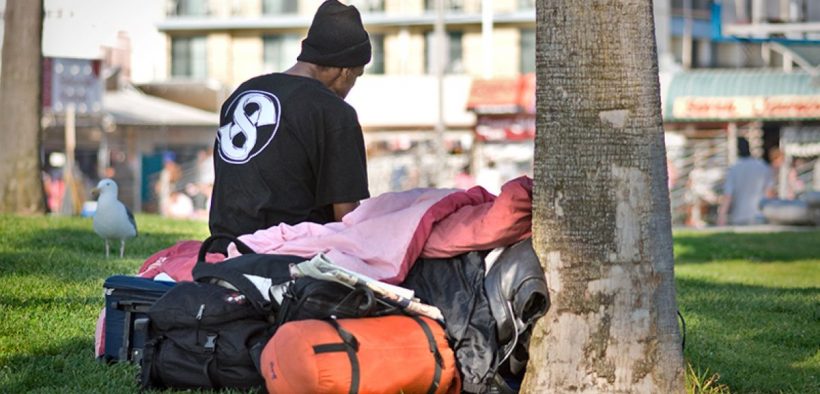Homeless People Are Especially at Risk For Coronavirus

At a time when the safest place for everyone to be is at home, those with no home are at high risk of contracting COVID-19, and more likely to experience major health complications and die.
From Bad to Worse
For homeless Americans COVID-19 is a pandemic on top of an existing health crisis. Being homeless is an extreme health risk in the best of times, the average life expectancy for chronically homeless Americans is in the 60s, compared with 80 for the general population. In some cities the life expectancy for a homeless person can be under 50.
According to the Centers for Disease Control (CDC) “Based on currently available information and clinical expertise, older adults and people of any age who have serious underlying medical conditions might be at higher risk for severe illness from COVID-19.” A disproportionate number of homeless people fall into that category of “having serious underlying medical conditions.”
Specifically, the CDC mentions people with chronic lung disease people who are immunocompromised. Homeless individuals are up to three times more likely than the general population to be HIV positive. Chronically homeless people also experience much higher rates of obstructive lung disease (OLD), with some studies showing up to double the rates in the general population. OLD includes asthma, bronchitis, and chronic obstructive pulmonary disease (COPD).
Limited Hygiene and Housing Options
Lack of access to hygiene facilities is another major problem for homeless people trying to stay healthy and safe. Many places like shopping malls and restaurants that have public restrooms have closed. Cities that have closed parks in order to encourage social distancing have left homeless people with virtually no access to anywhere to clean themselves or their belongings.
Some cities have tried to combat this issue in different ways. Honolulu, which has the second most homeless residents per capita in the U.S., opted to reopen park facilities specifically so homeless people could continue to have access to restrooms and showers. Los Angeles installed handwashing stations near homeless camps to try and stem the spread of the virus. The effort has run into challenges with keeping them stocked, and some may be removed after a worker refilling them was injured by a syringe.
Los Angeles has also tried to address another big challenge in keeping homeless people safer from a mass outbreak by asking those sleeping in tents on the street to socially distance from each other. In Las Vegas after a person staying at a Catholic Charities shelter tested positive for COVID-19 the shelter had to close and nearly 500 people who had been staying there had to be moved to a parking lot in designated spaces to maintain social distancing. It’s unclear how long this arrangement will be in place, even once the shelter is disinfected it is apparently being reserved as a potential overflow option if the City runs out of hospital beds. The decision to let people sleep in a parking lot when there are literally thousands of hotel beds currently empty in Las Vegas has drawn criticism for Las Vegas, but the truth is that many other cities have done even less to protect their homeless populations during the pandemic.
The CDC’s guidance on how to respond to COVID-19 among homeless people underscores the lack of good shelter options in this situation: people who are sleeping outside are vulnerable and exposed to the elements, people sheltering in crowded group shelters are at high risk of spreading and catching the disease. As the number of Americans infected continues to rise and the death toll mounts it is likely that the pandemic will take a disproportionately high toll on homeless Americans. And as job losses and the economic toll also grows, more and more Americans may end up in that category.







